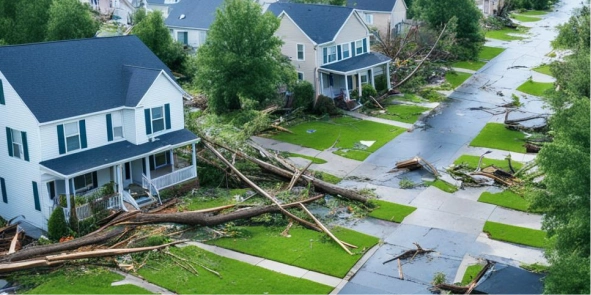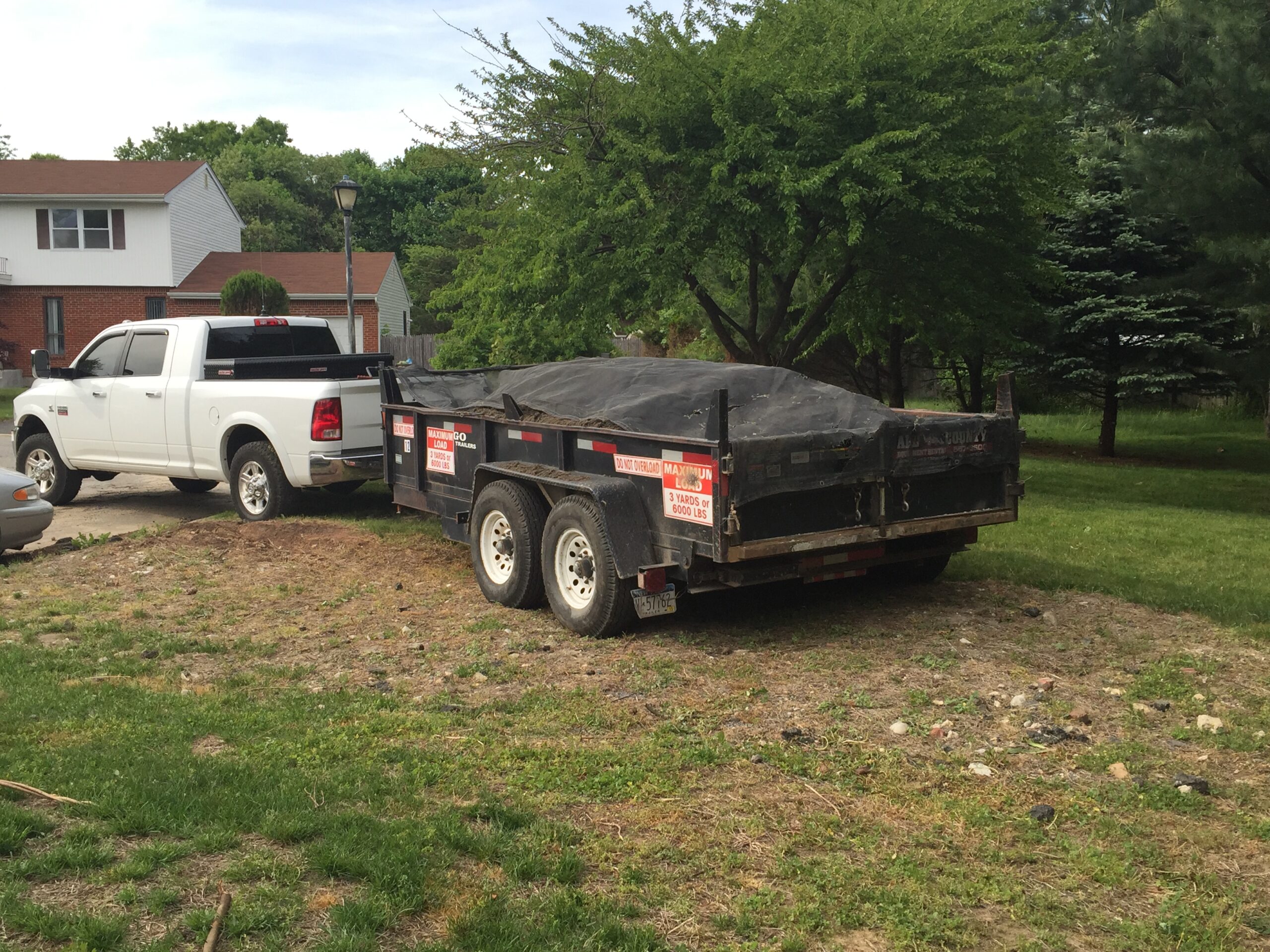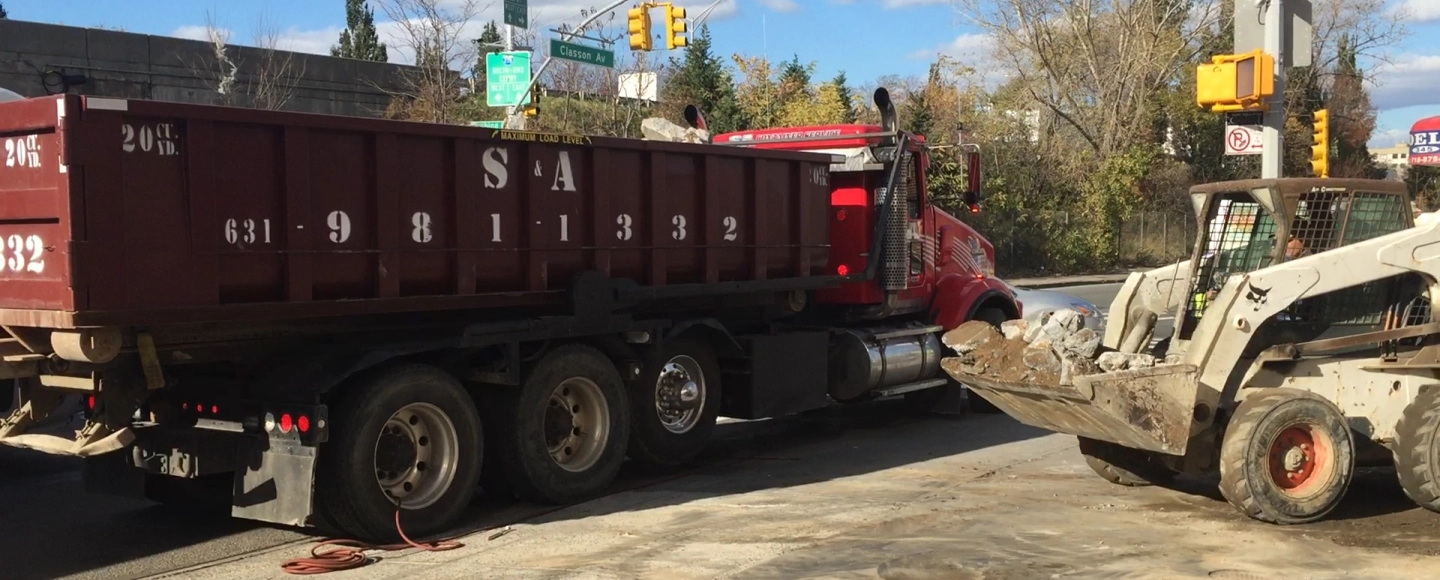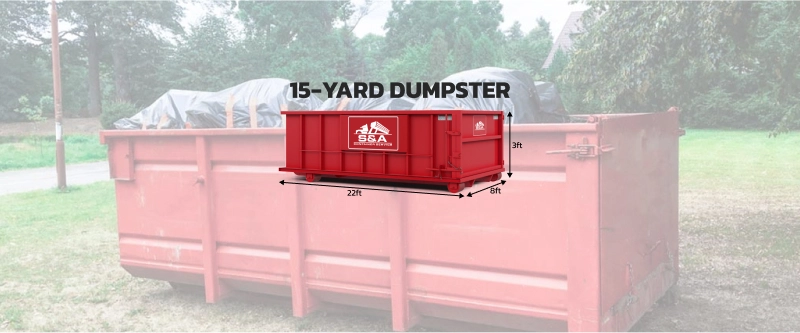Let’s face it, emergencies don’t usually occur when you have time to prepare. Debris builds up quickly, whether it’s from a storm that sweeps through, or an unexpected kitchen makeover following a burst pipe. An emergency dumpster rental can help with that.
With real-world examples from all over Long Island, we’ll explain how to quickly rent a dumpster below, along with all the information you need to know about disposal costs, hidden fees, transfer stations, and handling hazardous materials.
Why Emergency Dumpster Rentals Make Sense
You need a quick and dependable way to remove the debris when a disaster occurs, like a tree smashing through your roof or a basement flood that leaves your house in a state of disarray. The solution is to rent a dumpster in an emergency. You can put virtually anything in a roll-off dumpster, including wet drywall, broken branches, and damaged furniture.
Consider a Patchogue basement flood: you’ll probably fill a 10-yard or 20-yard temporary dumpster quickly after removing all the carpet, damaged boxes, and wet furniture. By letting the rental company take care of the removing the debris, you can concentrate on cleanup rather than making frequent trips to the transfer station.
- The Key is Speed: Renting an emergency dumpster allows you to concentrate on the larger cleanup by quickly removing debris from your property.
- Size Counts: Choose a dumpster that is 10-yards for small jobs, 20-yards for medium-sized jobs, and 30 to 40-yards for large disasters.
- Be Mindful of the Fine Print: Ask about weight restrictions, hidden fees, and disposal costs.
- Special Handling is Necessary for Hazardous Materials: Paint, chemicals, and insulation should not be thrown in the ordinary trash can.
Local haulers are knowledgeable and can guide you through transfer stations, permits, and avoiding fines.
Fast Delivery When You Need It Most
With prompt, dependable dumpster rentals throughout Long Island, S&A Container Service is prepared to assist in times of need. We provide timely scheduling to keep your project moving forward, whether you’re dealing with a fire damaged home, storm cleanup, or an unforeseen renovation. Demand for dumpsters frequently increases following significant storms or flooding. For this reason, it’s critical that you get in touch with us right away. To be sure you don’t have to wait when you need your container the most, our staff will go over size options with you, verify availability, and make a reservation.
Determine where the dumpster will go first, whether it will be in the driveway, the street, or even the yard. This is especially important if you live in a place like Huntington where space may be limited. Find out from your hauler whether a permit is required for street placement. Next, arrange your trash. Keeping bulky items together like dirt, shingles, or concrete makes it easier to monitor weight restrictions, which can significantly affect disposal expenses. For instance, keep wet drywall and carpet away from heavy objects like bricks or broken furniture if your basement flooded. In this manner, you can prevent unpleasant surprises when it comes time to pay the bill.
Remember that chemicals and paint are examples of hazardous materials. These will require special handling at a nearby transfer station and cannot be placed in a standard portable dumpster. Plan for those things in advance.
Finally, discuss the rental period with your hauler; some may offer a week, while others may charge more for more days. Being aware of all of this prior to the start of the job keeps you stress-free, organized, and within your budget.
Common use cases for emergency dumpsters include:
- Storm Damage: Roof debris, fallen trees, and broken fences from hurricanes or nor’easters.
- Flood Cleanouts: Following a basement or ground floor flood, wet carpets, drywall, insulation, and furniture are all cleaned out.
- Renovations Caused by Fire: Materials damaged by smoke, melted plastics, and burned wood must be removed right away before repairs can start.
Materials that need special disposal arrangements, usually at a certified transfer station, include paint cans, asbestos insulation, and outdated chemicals.
Recent articles:
- The real cost of DIY disposal hauling
- Use cases for a dumpster rental in Queens
- How dumpster rentals can help with downsizing
Handling Hazardous Materials Safely
You may find yourself gazing at items like old paint, solvents, or insulation following a storm or fire. Unlike ordinary debris, these hazardous materials cannot be disposed of in a roll-off dumpster. Rather, you will have to make arrangements for appropriate disposal through a certified facility, which is usually a hazmat transfer station.
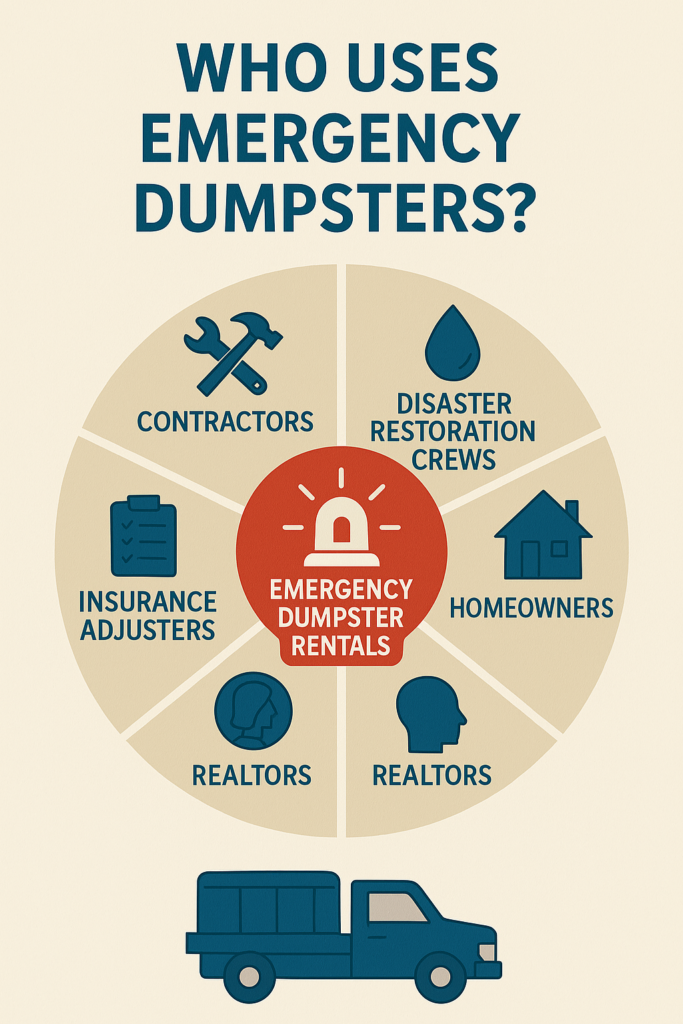
Expert advice: Find out from your hauler what is and is not permitted before you begin throwing everything in the trash. This will assist you in avoiding unforeseen penalties or delays in disposal.
Avoiding Unexpected Fees and Surprises
A surprise bill is the fastest way to ruin a cleanup project. Asking your hauler exactly what is included in the base rental price will help you avoid those dreaded hidden fees. Learn how many days are included in the regular rental and whether there will be additional fees if you need to keep the dumpster for a little longer. Another offender is weight restrictions; be sure to know how much debris you can throw in before additional fees apply.
Additionally, don’t forget to inquire about any additional costs for particular materials, such as heavy debris or disposal fees for items that need special handling. Before you commit, local businesses in areas like Huntington and Smithtown can provide you with the lowdown on everything, preventing you from being surprised by a larger-than-expected bill. If you’d like to learn more about dumpster rentals, get in touch with S&A Container Service today!
